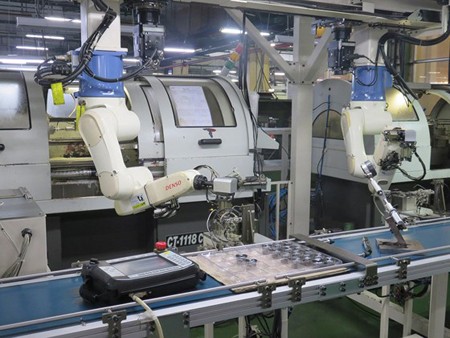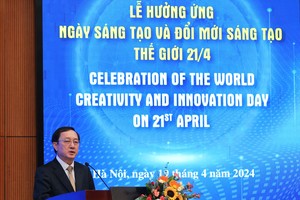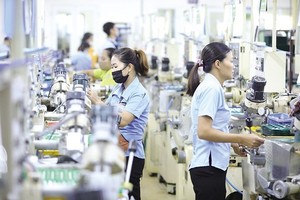
When being asked about upgrading their working skills to avoid being fired when applications of Industry 4.0 being implemented, many blue-collar workers shared that although they overheard people talking about Industry 4.0, they did not truly understand the concept or care about the matter.
They all said that they were too busy with work and childcare or housework to register for any classes at the moment. Some even thought that they will have been retired by the time machines replaces their positions.
In contrast with the indifference of the laborers, leaders of many businesses have already begun their preparation for the integration into Industry 4.0.
According to Mr. Nguyen Ngoc An, Head of Vissan Joint Stock Company, to go ahead of this technology wave, his company has prepared a detailed plan to invest into a new plant with a closed automatic process worth hundreds of thousands of USD.
Similarly, Limo Group Joint Stock Co., a vehicle seller of the Limousine brands, has heavily invested into human resources, machines, and infrastructure, especially the Information Technology team. Head of the company, Mr. Huynh Tan Loc, said that thanks to new technologies, his company was able to deliver swift support and connect to customers regardless of location and time. This helps clients to see their products from the idea stage to choosing proper material, parts, and designs, which greatly save both the company and customers valuable time and cost.
Doctor Le Kim Dung, Head of the Department of Employment under the Ministry of Labor – Invalids and Social Affairs, commented that Industry 4.0 has a significant effect on the labor market with regard to the number of jobs, the quality of jobs, and the connection between supplying and demand.
Positively, the implementation of technology, especially information technology, offer many jobs, mostly skillful ones. In addition, the improvement of working conditions means the increase in working and job quality. Thanks to an effective connection between supplying and demand, job centers are now able to better serve laborers.
However, many jobs with simple skills in industries like textile and garment, footwear will no longer need humans.
There is neither any general research on the scale of effects of Industry 4.0 on the labor force in Vietnam nor estimation on the job loss. Yet some organizations have forecast around 50 percent of current jobs will fall into the hand of automatic machines.
The Head of the Department of Employment also analyzed that in the textile and garment industry, to finish a product such as a skirt requires around 78 actions. Nevertheless, machines can only be responsible for eight of them, which means the human force with their skillful hand and flexible brain is still needed. Not to mention, businesses have to build the expensive machinery to replace humans, which is sometimes even more costly than paying humans.
According to Ms. Le Kim Dung, the competition between humans and machines, therefore, depends a great deal on identifying the correct trends in Industry 4.0 and then prepare in accordance to avoid being replaced. What is more, the preparation scale will be decided by managers and laborers themselves.
Her suggestion is that the labor force needs to continuously upgrade their own skills and exercise self-training in their whole life.
Governmental bodies should try their best to have qualified human resources to meet the demands of the society, especially in new industries like robot programming, robot manufacturing, and automation. They should also perfect their prediction jobs and information updating for the labor market.
























